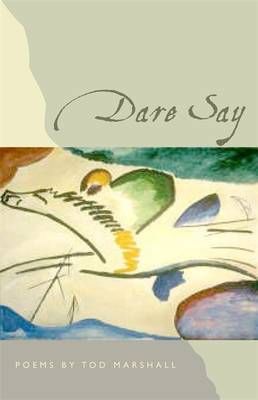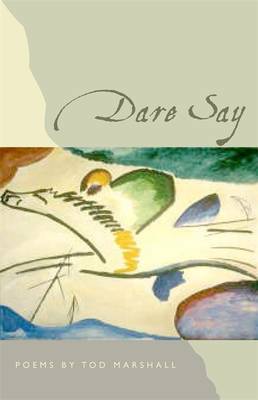
- Retrait gratuit dans votre magasin Club
- 7.000.000 titres dans notre catalogue
- Payer en toute sécurité
- Toujours un magasin près de chez vous
- Retrait gratuit dans votre magasin Club
- 7.000.0000 titres dans notre catalogue
- Payer en toute sécurité
- Toujours un magasin près de chez vous
Description
Eschewing irony for direct statement, the poems in Tod Marshall's first collection imagistically, musically, and passionately articulate a faith in human transcendence. From the mud of our formation ("Choir") to the dust of our dying ("After Kandinsky"), Marshall's poems lyrically obsess over how the broken and violated can envision and speak a heaven of which we know.
Three long poems that shape the book are formative in this process. From the structured order of Bach's Goldberg Variations looming behind the opening poem, "Eclipse," to the clash of pagan beauty and traditional religiosity in "Botticelli," to the Modernist meditation on form in "After Kandinsky," the poems return again and again to the idea of anagogical presence and how it can be best rendered in art to inspire a celebratory ethos of living. Are the violent and shocking events those that best slap us awake? Or are the gentle, lyrical moments the times when we are most keenly aware of the song that is Being? In "After Kandinsky," Marshall writes, "like syntax / a poem that fixes the body / to a specific place / of points and lines and planes / and yet moves to celestial music / a poem that tests / on fifteenth century truth / 'Whoever loves much does much' / a poem that glistens with an unmatched insistence / a poem that arrives on time / and demands everyone / nail it to the wall." Here is a declaration that one could nail manifesto-like to the wall as a pronouncement of the need to see, to hear, and to speak of divinity in the world.Spécifications
Parties prenantes
- Auteur(s) :
- Editeur:
Contenu
- Nombre de pages :
- 72
- Langue:
- Anglais
- Collection :
Caractéristiques
- EAN:
- 9780820350530
- Date de parution :
- 15-05-16
- Format:
- Livre broché
- Format numérique:
- Trade paperback (VS)
- Dimensions :
- 140 mm x 216 mm
- Poids :
- 81 g

Les avis
Nous publions uniquement les avis qui respectent les conditions requises. Consultez nos conditions pour les avis.






